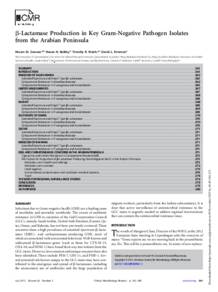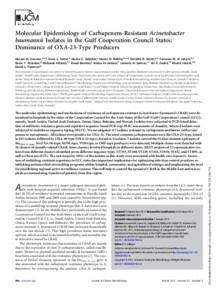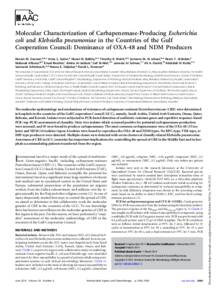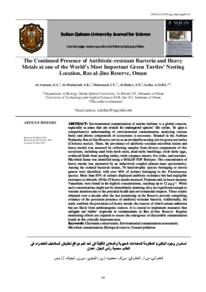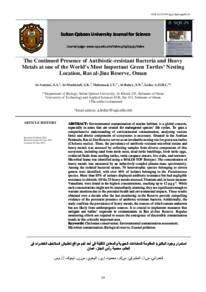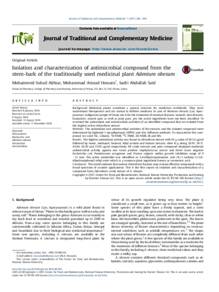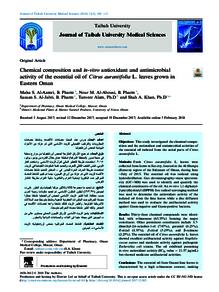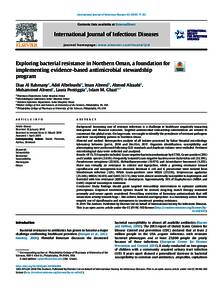Document
β-lactamase production in key gram-negative pathogen isolates from the Arabian Peninsula.
Identifier
DOI: 10.1128/CMR.00096-12
Contributors
Publisher
Elsevier.
Gregorian
2013-07
Language
English
English abstract
Infections due to Gram-negative bacilli (GNB) are a leading cause of morbidity and mortality worldwide. The extent of antibiotic resistance in GNB in countries of the Gulf Cooperation Council (GCC), namely, Saudi Arabia, United Arab Emirates, Kuwait, Qatar, Oman, and Bahrain, has not been previously reviewed. These countries share a high prevalence of extended-spectrum-β-lactamase (ESBL)- and carbapenemase-producing GNB, most of which are associated with nosocomial infections. Well-known and widespread β-lactamases genes (such as those for CTX-M-15, OXA-48, and NDM-1) have found their way into isolates from the GCCstates. However, less common and unique enzymes have also been identified. These include PER-7, GES-11, and PME-1. Several potential risk factors unique to the GCC states may have contributed to the emergence and spread of β-lactamases, including the unnecessary use of antibiotics and the large population of migrant workers, particularly from the Indian subcontinent. It is clear that active surveillance of antimicrobial resistance in the GCC states is urgently needed to address regional interventions that can contain the antimicrobial resistance issue.
Member of
ISSN
0893-8512
Resource URL
Category
Journal articles

